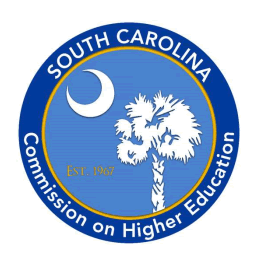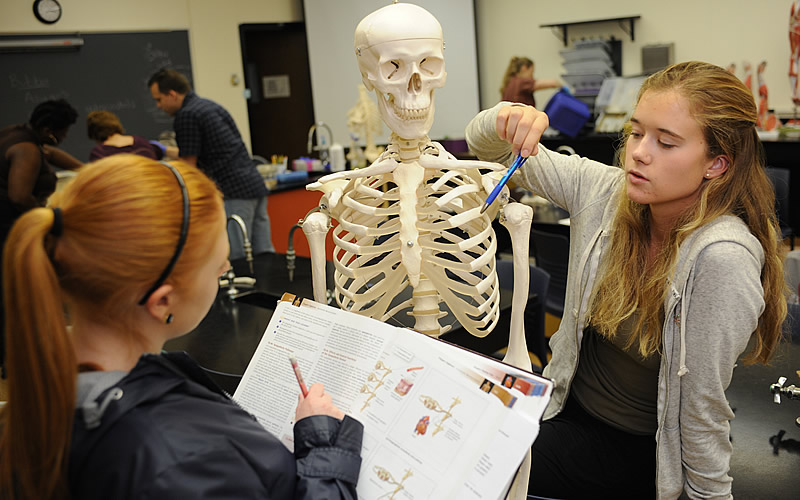Students at Francis Marion University. Photo provided.
By Lindsay Street, Statehouse correspondent | A state higher education watchdog and advocate is ringing alarms all over the state about the increasing costs of college tuition and a dwindling number of college students. But its recently released “student bill of rights” — aimed at furthering dialogue on higher education — has hit a false note for some.
One of the bill-of-rights critics is recent Francis Marion University graduate and the college’s former student body president, Marcedes Smith of Marion. In a national atmosphere of students leading protests and expecting a seat at the table, Smith says the S.C. Commission on Higher Education (CHE) mis-stepped when it failed to include students during drafting the document.

“It wasn’t written by students,” Smith said. “That’s interesting to me. If it’s supposed to benefit students, then they should be taken into account … It is something that’s frightening: giving something that big to people who don’t know what we are thinking.”
Leadership at CHE countered the point: The commission held town halls throughout the state and some of those who spoke at the meetings were students.
“We’ve listened to them and it was part of the very fiber of that bill of rights,” CHE Chairman Tim Hofferth said, adding the document was drafted without direct student input before it was presented at town halls.
About the bill of rights
A student bill of rights ultimately is supposed to be a continuation of an ongoing conversation the CHE started in 2017 among students, parents, public colleges and lawmakers, according to Hofferth. The main theme of the topic is the skyrocketing tuition and fee costs: South Carolina has among the most expensive in-state tuition in the nation.
 Unfortunately, some say, the CHE is all bark and no bite under state law. It acts as an oversight agency and advocate, but it can only bring items to lawmakers’ attention or make recommendations, Hofferth said.
Unfortunately, some say, the CHE is all bark and no bite under state law. It acts as an oversight agency and advocate, but it can only bring items to lawmakers’ attention or make recommendations, Hofferth said.
“We’re limited as far as what we can do to bend these curves of affordability, accessibility and sustainability,” he said.
So the CHE is rattling the cage now to get attention, starting with the town halls it launched earlier this year and more recently with the student bill of rights. The numbers are dire: public colleges have lost a third of state funding in the last 10 years, and the average tuition ($12,610) among the state’s four-year public institutions is the ninth highest in the nation, according to data from a personal finance website.
The bill of rights calls for:
- Palmetto Fellow and Life lottery tuition scholarship recipients should be granted automatic acceptance to any public institution of higher learning in South Carolina.
- Out-of-state students should not have priority over qualified in-state students, and the number of out-of-state students should possibly be capped. Out-of-state students receiving tuition breaks should be considered carefully.
- Students should be able to transfer freely between public institutions.
- Tuition costs should be frozen or capped.
- Institutions need more transparency when it comes to fees.
The commission should continue to collect information on enrollment and budget to ensure financially viable institutions.

“(The bill of rights) was the commission’s work,” Hofferth said. He added that student input was woven into the bill of rights, but no students were directly involved in drafting the bill.
But if the CHE had polled students or gotten more direct involvement, critic Smith said she thought the result would look slightly different. She said she agreed with many of the points — not many can argue against the stark numbers of college affordability — but she worried that capping out-of-state students could affect experiential and background diversity on campus. She also said students could also face unfair financial or academic challenges by gaining acceptance to any university based on scholarship awards.
Attempts to reach student leadership at Clemson, College of Charleston, University of South Carolina, and Wofford were unsuccessful. According to CHE Executive Director Jeff Schilz, USC’s student government met with CHE last year and discussed freezing tuition.
What’s next
Higher education reform is already on lawmakers’ radar, but it failed to get on the agenda during this past session.
In the final days of session, education hawk S.C. Sen. Vincent Sheheen, D-Kershaw, proposed a bill that would lower higher education costs in the state. The bill was meant to set up a conversation over costs during next year’s session, beginning in January.
Gov. Henry McMaster has also come out in support of capping tuition in the state.
“It’s the first pitch in a nine-inning game,” Hofferth said. “We’re not there. It was a way to organize through all the noise.”
More town halls and a CHE meeting with college presidents is expected during the summer break.
“This isn’t just a problem for one school or a couple people; this is a problem for the state,” Schilz said.
Smith, who will attend Charleston School of Law in the fall, said she would like to see more student input on CHE’s advocacy efforts.
“I would love in the future to see the Commission on Higher Education have a lot of student input and maybe consider making a clear layout so students can follow and understand it,” Smith said. “Town hall forums — it takes a little bit more than that to reach out to students and really get the input. You can’t make decisions for other people you can’t relate to.”
- Have a comment? Send to: feedback@statehousereport.com

















 We Can Do Better, South Carolina!
We Can Do Better, South Carolina!